Best Programs for App Development in Singapore (2025 Guide)
Mobile apps are essential for businesses in Singapore’s fast-paced, tech-driven market. From startups to enterprises, choosing the right app development program can make or break your project.
In this 2025 guide, we highlight the 10 best programs for app development in Singapore, compare their features, and help you pick the right tool based on your goals, team, and budget. Whether you’re building in-house or outsourcing, this list will give you a head start.
Table of Contents
- What Is a Program for App Development?
- App Development in Singapore: Market Snapshot
- Best 10 App Development Programs in Singapore (2025)
- Choosing the Right Program for Your Needs
- Trends in App Development Software (2025-2030)
- Why Businesses Choose Kaopiz for App Development
- Conclusion
- FAQs
What Is a Program for App Development?
A program for app development refers to the tools and software used to design, build, test, and deploy mobile applications. These programs provide the essential environment and resources developers need to write code, manage files, integrate APIs, and simulate app behavior on different devices.

There are several types of app development programs:
- Integrated Development Environments (IDEs): These include tools like Android Studio and Xcode, which offer advanced coding, debugging, and testing features for building native apps.
- Cross-Platform Frameworks: Tools like Flutter and React Native allow developers to write a single codebase that runs on both iOS and Android.
- Low-Code/No-Code Platforms: Programs such as OutSystems and Mendix enable faster app development with minimal hand-coding, ideal for businesses looking to build internal tools or MVPs quickly.
Each type serves different use cases — from high-performance consumer apps to quick enterprise solutions. Choosing the right programming for app depends on your technical requirements, development resources, and long-term goals.
App Development in Singapore: Market Snapshot
Singapore’s digital economy is booming, and mobile application development is at the heart of this transformation. As businesses across industries embrace digitalization, the demand for robust and scalable app development solutions continues to rise.
According to Statista, the application development software market in Singapore is expected to reach a remarkable $576.51 million by 2025. This growth is projected to continue at a CAGR of 5.24% from 2025 to 2030, with the market size estimated to hit $744.07 million by 2030.
Singapore’s thriving tech ecosystem, Smart Nation initiatives, and skilled talent have made it a leading hub for app development. Recognizing the benefits of mobile applications, Startups, SMEs, and enterprises are increasingly investing in app development tools to launch new products, streamline operations, and enhance customer engagement.
Best 10 App Development Programs in Singapore (2025)
Choosing the right development tool is key to building a successful mobile app that meets your business goals. Below are the top 10 programs for app development in Singapore for 2025, trusted by startups, enterprises, and developers alike.
Flutter
Flutter is a popular open-source framework developed by Google for building high-performance, cross-platform mobile applications from a single codebase. Using the Dart programming language, Flutter enables developers to create smooth, visually rich apps for both iOS and Android with native-like performance.
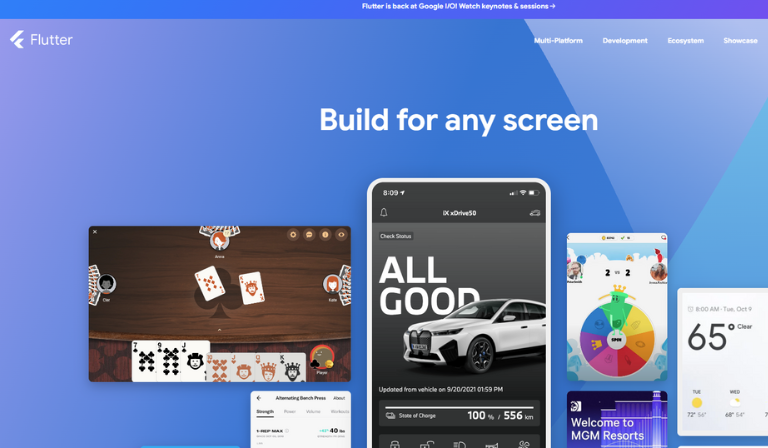
In Singapore, Flutter is popular among startups for its speed, flexibility, and strong community support. Its hot-reload feature makes it especially appealing for rapid prototyping and MVP development.
Key Benefits:
- Single codebase for multiple platforms
- Fast UI rendering and expressive design
- Strong community and Google-backed support
- Ideal for mobile apps, web apps, and even desktop apps
Flutter is one of the smart programs for app development for businesses looking to reduce development costs while maintaining a high-quality user experience.
React Native
React Native, developed by Meta (formerly Facebook), is a widely used open-source framework that allows developers to build cross-platform mobile apps using JavaScript and React. By enabling code reuse between iOS and Android, React Native significantly reduces development time and cost without compromising performance.
React Native is especially popular among startups and companies in Singapore with existing web development teams, as it allows developers to leverage their JavaScript skills to build mobile apps. The strong community, rich ecosystem, and support for third-party libraries make it a flexible choice for building feature-rich applications.
Key Benefits:
- Shared codebase for iOS and Android
- Fast development and strong performance
- Backed by Meta and used by global apps like Facebook, Instagram, and Uber
- Active community and extensive plugin ecosystem
React Native is one of the go-to programs for mobile app development for businesses in Singapore seeking a cost-effective and scalable way to deliver cross-platform mobile experiences.
Ionic
Ionic is an open-source framework designed for building hybrid mobile applications using familiar web technologies like HTML, CSS, and JavaScript. Built on top of Angular, React, or Vue, Ionic enables developers to create cross-platform apps with a single codebase that runs on iOS, Android, and the web.
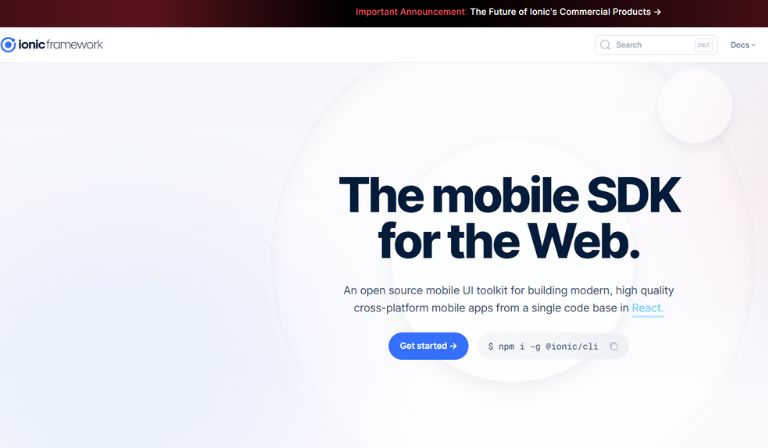
In Singapore, Ionic is favored by SMEs and startups looking to quickly launch mobile apps without investing heavily in native development. Its ease of use, rich library of UI components, and seamless integration with existing web apps make it ideal for MVPs, booking systems, and content-driven applications.
Key Benefits:
- Leverages existing web development skills
- Cross-platform compatibility
- Fast development with reusable components
- Access to native device features via Capacitor or Cordova
Ionic is a smart choice for businesses that want to build affordable, flexible mobile apps without sacrificing user experience or development speed.
Apache Cordova (PhoneGap)
Apache Cordova, formerly known as PhoneGap, is an open-source mobile development framework. It allows developers to create apps using standard web technologies — HTML, CSS, and JavaScript. It works by wrapping web code in a native container, enabling access to device features like the camera, GPS, and file system.
Once a popular choice for hybrid app development, Cordova is now considered a legacy tool. Many still use it for simple or legacy apps, but most developers now prefer modern tools like Ionic or Flutter for better performance and UI.
Key Benefits:
- Web-based development (no need for native language expertise)
- Cross-platform deployment
- Access to native device APIs via plugins
- Ideal for lightweight apps with limited complexity
While Apache Cordova is no longer at the cutting edge of mobile development, it still offers value for basic hybrid apps and teams with strong web development backgrounds.
Android Studio
Android Studio is the official IDE for building Android applications, developed and maintained by Google. It offers robust tools for building high-performance Android apps with Java or Kotlin.
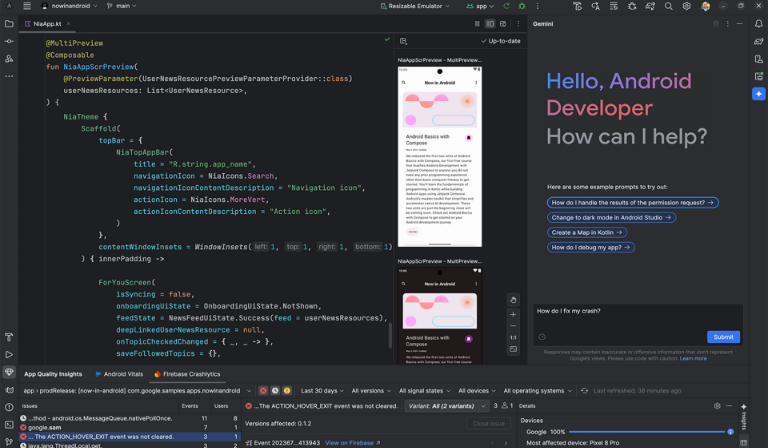
In Singapore, Android Studio is widely used by enterprises, fintech firms, and tech startups. These businesses target the large Android user base across Southeast Asia. Android Studio is the go-to choice when full control over performance and security is needed. It also supports deep integration with Android features like Google Pay, location services, and hardware sensors.
Key Benefits:
- Native Android development with full platform support
- Advanced debugging, profiling, and emulation tools
- Built-in support for Jetpack, Firebase, and other Google services
- High performance and smooth integration with custom device features
For businesses that prioritize performance, stability, and deep device integration, Android Studio is the top choice for Android app development in Singapore.
Xcode
Xcode is Apple’s official IDE for creating apps for iOS, iPadOS, macOS, watchOS, and tvOS. It supports both Swift and Objective-C programming languages and offers a full suite of tools for coding, UI design, testing, and debugging within the Apple ecosystem.
In Singapore, Xcode is widely used by startups, financial institutions, and healthtech companies developing high-performance iOS apps. With Apple strong in B2B and premium markets, Xcode delivers top performance, security, and user experience.
Key Benefits:
- Full native access to Apple’s SDKs and APIs
- Powerful interface builder for SwiftUI and UIKit
- Seamless integration with Apple developer tools like TestFlight
- Optimized for performance, speed, and App Store compliance
For businesses targeting iOS-first markets or building apps that demand smooth performance and tight platform integration, Xcode is one of the industry-standard programs for app development in Singapore and globally.
JetBrains IntelliJ IDEA (with Plugins)
JetBrains IntelliJ IDEA is a powerful and feature-rich IDE primarily used for Java and Kotlin development. With the right plugins, IntelliJ IDEA has become a robust tool for building Android applications and even hybrid or cross-platform apps.
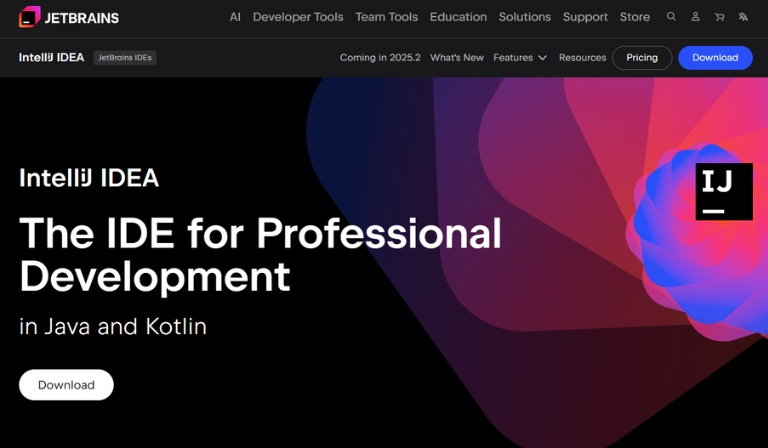
In Singapore, IntelliJ IDEA is favored by experienced developers and enterprise teams working on complex Android projects or backend systems tightly integrated with mobile apps. Its advanced code analysis, smart refactoring, and seamless version control integration make it a productivity powerhouse.
Key Benefits:
- Deep support for Java, Kotlin, and Android SDK
- Highly customizable with extensive plugin ecosystem
- Superior code navigation, debugging, and refactoring tools
- Ideal for full-stack developers or complex Android apps
JetBrains IntelliJ IDEA is best suited for professional developers in Singapore who need a high-performance development environment that goes beyond basic mobile app functionality.
OutSystems
OutSystems is a leading low-code application development platform designed for rapidly building and deploying scalable web and mobile applications. It enables both developers and non-developers to create feature-rich apps with minimal hand-coding, using visual development tools and pre-built components.
In Singapore, OutSystems is widely adopted by enterprises, government agencies, and financial institutions seeking to accelerate digital transformation. Its strong focus on security, integration, and scalability makes it ideal for mission-critical applications such as customer portals, internal operations systems, and workflow automation tools.
Key Benefits:
- Rapid development with visual drag-and-drop interface
- Built-in support for mobile responsiveness and offline access
- Enterprise-grade security, scalability, and performance
- Easy integration with existing systems and APIs
OutSystems is one of the great programs for app development businesses in Singapore that need to launch apps quickly without compromising on functionality, especially in regulated industries like finance, healthcare, and public services.
Mendix
Mendix is a powerful low-code application development platform that enables businesses to build, test, and deploy mobile and web applications rapidly. Known for its collaborative development environment, Mendix empowers both professional developers and business users (citizen developers) to contribute to the app-building process.
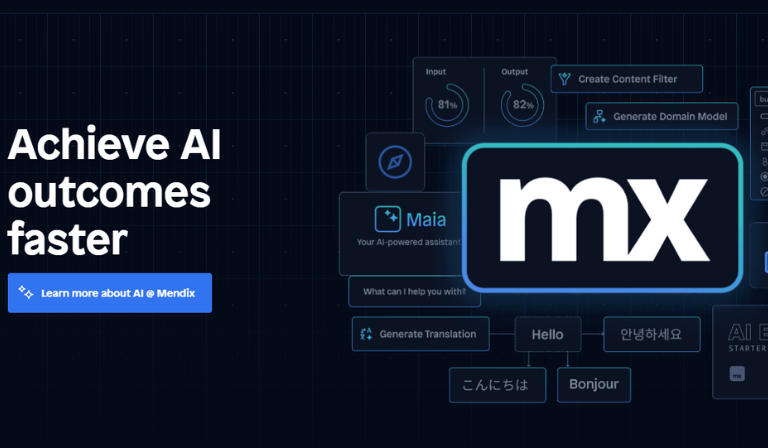
In Singapore, Mendix is used by logistics and manufacturing companies. These businesses rely on Mendix to build internal apps for automation, asset tracking, and digital workflows. Its support for both low-code and pro-code development makes it ideal for scalable, long-term enterprise solutions.
Key Benefits:
- Visual modeling and drag-and-drop interface
- Cloud-native and scalable architecture
- Seamless integration with enterprise systems like SAP and Salesforce
- Built-in tools for workflow automation and real-time collaboration
Mendix is the preferred choice for organizations in Singapore seeking to digitize operations quickly while ensuring enterprise-level customization, governance, and security.
Unity
Unity is a leading cross-platform game engine known for its robust capabilities in building 2D, 3D, AR, and VR applications. Built with C#, Unity is used not only for games but also for interactive apps and immersive experiences.
In Singapore, Unity is used by businesses seeking interactive, AR/VR-driven apps, especially in edtech, tourism, and real estate.
Key Benefits:
- Rich graphics engine for stunning visuals
- Supports AR/VR development for immersive experiences
- Large asset store and plugin ecosystem
- Cross-platform support, including iOS, Android, and WebGL
Unity is ideal for Singapore businesses that want to create next-generation mobile experiences, such as virtual tours, educational games, and interactive product demos.
Choosing the Right Program for Your Needs
With so many programs for app development available, selecting the right one can feel overwhelming. The best choice depends on several key factors, including your target platform, available resources, budget, and long-term goals. Here’s how to make the right decision for your business:
Based on Platform (iOS, Android, Cross-Platform)
If you’re building a specific platform, native tools like Xcode (for iOS) or Android Studio (for Android) provide the best performance and access to device features.
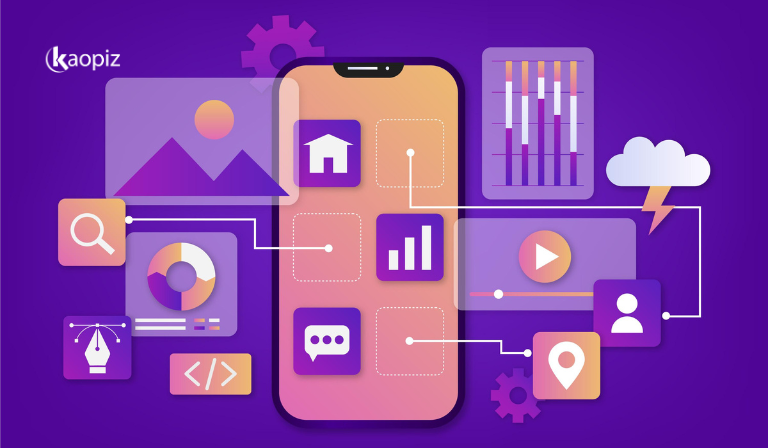
However, if your goal is to launch on both platforms quickly, cross-platform frameworks such as Flutter, React Native, or Ionic allow you to develop once and deploy everywhere — saving time and money.
Based on Development Resources (In-house vs Outsourcing)
If you have an in-house team with expertise in web development, tools like React Native or Ionic are easier to adopt. For non-technical teams or organizations aiming for rapid delivery, low-code platforms like OutSystems and Mendix are excellent options.
If you’re outsourcing, reliable IT outsourcing companies in Singapore (like Kaopiz) can help you choose the most efficient toolset based on project requirements.
Based on Timeline and Budget
For tight deadlines or limited budgets, cross-platform frameworks and low-code platforms are ideal due to their fast development cycles and reduced overhead.
If you need full customization and high performance, native development may require more time and investment but offers better long-term scalability and control.
Futureproofing and Community Support
Choosing a program with strong community backing ensures better documentation, regular updates, and long-term support. Flutter, React Native, and Unity all benefit from large global communities.
For enterprise use, consider platforms with a clear product roadmap and support options — OutSystems, Mendix, and JetBrains IntelliJ IDEA are known for their stability and ongoing innovation.
Trends in App Development Software (2025-2030)
The landscape of app development is evolving rapidly, driven by the demand for speed, scalability, and smarter user experiences. As Singapore and the global market continue to digitize, here are the key trends shaping app development software from 2025 to 2030:

- Low-Code and No-Code Adoption: Platforms like OutSystems and Mendix are making it easier for teams to build apps faster with minimal coding. This trend is helping businesses reduce costs, speed up delivery, and address developer shortages.
- AI-Assisted Development Tools: AI tools such as GitHub Copilot are becoming everyday coding assistants—writing code, suggesting fixes, and improving productivity for both junior and senior developers.
- Cloud-Based IDEs: Tools like GitHub Codespaces and AWS Cloud9 are gaining popularity for remote-friendly, browser-based development. They streamline collaboration and remove local setup hassles—perfect for distributed teams.
- Enterprise-Grade Security and Compliance: With growing data regulations like PDPA, development tools now offer features like secure authentication, role-based access, and audit trails. This makes platforms like OutSystems and IntelliJ IDEA more valuable for regulated industries.
Why Businesses Choose Kaopiz for App Development
With hundreds of software vendors in the market, what sets Kaopiz apart is our ability to combine technical excellence, cost efficiency, and reliable partnerships — all under one roof.
As a trusted mobile app development company in singapore, Kaopiz has helped startups, SMEs, and large enterprises develop scalable, user-friendly mobile apps across industries such as finance, retail, healthcare, logistics, and education.

Here’s why businesses choose Kaopiz for web/mobile app development:
- Expertise Across Technologies: From Flutter and React Native to native development with Swift, Kotlin, and Java, our team builds high-performance apps tailored to your goals.
- Flexible Engagement Models: Whether you need a dedicated offshore team or a full-cycle development partner, we offer flexible models to match your budget and timeline.
- Strong Track Record: Over 500 projects delivered with a 98% satisfaction rate, and trusted by clients in Singapore, Japan, the US, and beyond.
- Seamless Communication: English-speaking BrSEs and PMs ensure clear, proactive communication throughout the project lifecycle.
- Quality & Security: As an ISO 27001-certified company and AWS Advanced Tier Services Partner, we prioritize security, performance, and best practices in every build.
Whether you’re building a new mobile product, modernizing an existing one, or looking for a long-term development partner, Kaopiz offers the right blend of technical skills, speed, and strategic insight to help you succeed.
Conclusion
With the mobile app market in Singapore growing rapidly, choosing the right development program has never been more important. From powerful native IDEs like Android Studio and Xcode, to versatile cross-platform frameworks like Flutter and React Native, and enterprise-ready low-code platforms like OutSystems and Mendix — each tool offers unique strengths depending on your project goals, resources, and timeline.
As businesses continue to digitize, investing in the right programs for app development can lead to faster time-to-market, better user experiences, and long-term scalability.
FAQs
- Can I Build an App without Coding?
- Yes, you can. Low-code and no-code platforms like OutSystems and Mendix allow you to build fully functional mobile apps using visual drag-and-drop interfaces, making them accessible even to non-developers.
- What’s the Easiest Programming Language to Start with for App Development?
- JavaScript is often the easiest for beginners, especially when used with frameworks like React Native or Ionic. Dart, the language used in Flutter, is also beginner-friendly and increasingly popular for cross-platform app development.
- Should I Build Native or Cross-Platform Apps?
- It depends on your goals. If you need maximum performance and deep integration with device features, native apps (using Android Studio or Xcode) are the better choice. If you’re looking for faster development and wider reach, cross-platform frameworks like Flutter or React Native are more efficient and cost-effective.
2 Replies to “Best Programs for App Development in Singapore (2025 Guide)”
Leave a Comment
Trending Post
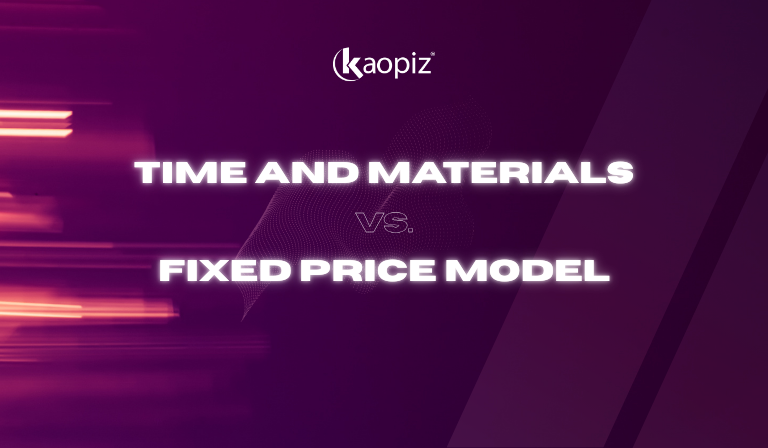
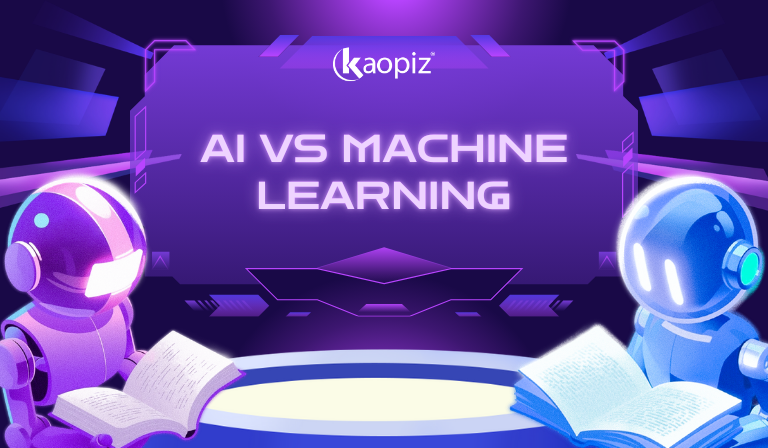
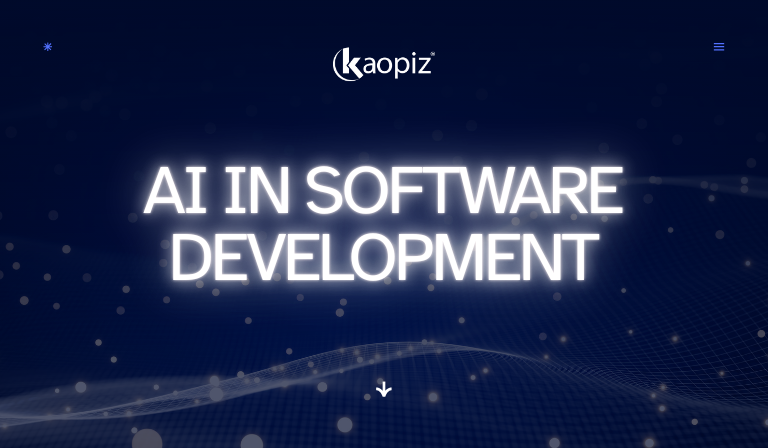
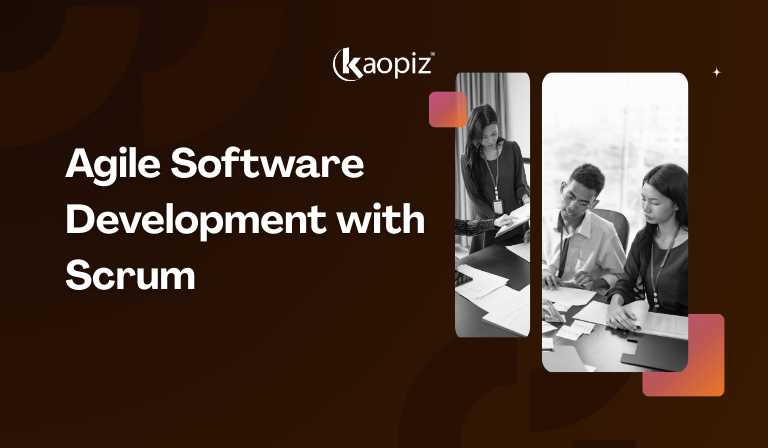

















Pingback:15+ Web Development Platforms for Building Websites [2025]
Pingback:React.js vs React Native: Which One Should Businesses Use